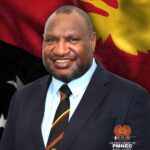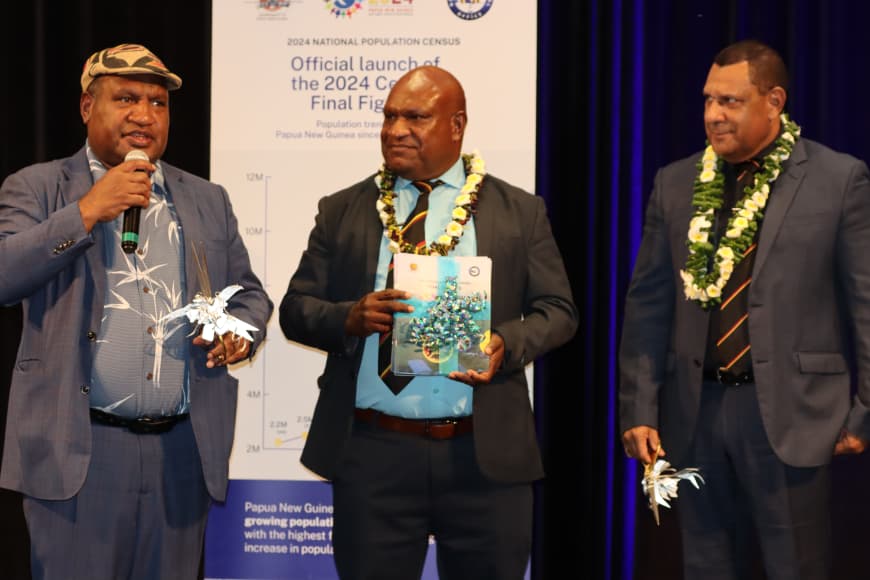Prime Minister Hon. James Marape has called on Papua New Guineans to embrace responsible Family Planning, warning that rapid population growth could outpace the nation’s economic capacity if not properly managed.
Speaking during the official announcement of the 2024 National Census Results, the Prime Minister revealed that the country’s Population now stands at 10,185,363, describing the figure as both a milestone and a wake-up call for policy-makers and citizens alike.
Prime Minister Marape congratulated the National Statistical Office (NSO) for conducting what he hailed as the ‘quickest, most efficient, and most cost-effective Census in the nation’s history’. The Census was launched in June 2024, and the Prime Minister commended the NSO for delivering it on time and under budget.
“Just as a mother must know how many children she is feeding before sharing a meal, the Government must know how many people it is serving before allocating resources,” the Prime Minister said.
He emphasised that the Population figure will serve as the foundation for all future planning, from education and health to infrastructure and employment creation.
However, PM Marape’s address took a reflective turn as he raised concern about the economic burden of rapid population growth. He urged young couples to consider limiting their families to two or three children, warning that the cost of raising a child to adulthood in modern Papua New Guinea is “an expensive exercise.”
“From conception to adulthood, it can cost up to K5 million to give a child a decent, modern upbringing,” he said. “Parents must think carefully. It is not about how many children you have, but about the quality of life you can provide for them.”
The Prime Minister proposed a national conversation on Population Control, suggesting a potential policy link between family size and the Government’s Free Education program. Under the proposal, the first two or three children in a family could receive full education support, while additional children would be the responsibility of parents.
“This is a conversation we must have maturely — in Churches, Communities, and Families. A sustainable country must have its Economy growing faster than its Population,” PM Marape said.
He also announced plans to make Population monitoring a continuous process, urging all Provincial Administrations to link with Health facilities to ensure every birth and death is properly recorded. This, he said, would enable more accurate and efficient future Censuses.
Reflecting on Papua New Guinea’s demographic and economic history, PM Marape noted that from Independence in 1975, the Population has tripled while Economic Growth has lagged behind.
“For the first 27 years, our Economy grew at less than 0.3 percent while our Population rose at around 3 percent. That imbalance cannot continue,” he warned.
As the Prime Minister reaffirmed his Government’s commitment to growing the Economy, he appealed for public cooperation in managing Population Growth.
He reminded citizens that the nation’s Population has expanded dramatically over the decades — from 2,184,991 in 1966, to 2,489,935 in 1971, 3,010,727 in 1980, 3,761,954 in 1990, 5,190,786 in 2000, and 7,275,324 in 2011, reaching 10,185,363 in 2024.
He further noted that the Population has grown by 2.6 percent annually, increasing by approximately 2.9 million people in the past 13 years, underscoring the urgency of managing Population Growth in line with the nation’s Economic strength. He added that a National Census is conducted every ten years, providing vital data for planning and development.
“As we celebrate 50 years as a nation and step into our next fifty, let us be mindful of sustainability. Our Economy must not only grow — it must grow faster than our Population,” PM Marape concluded.






